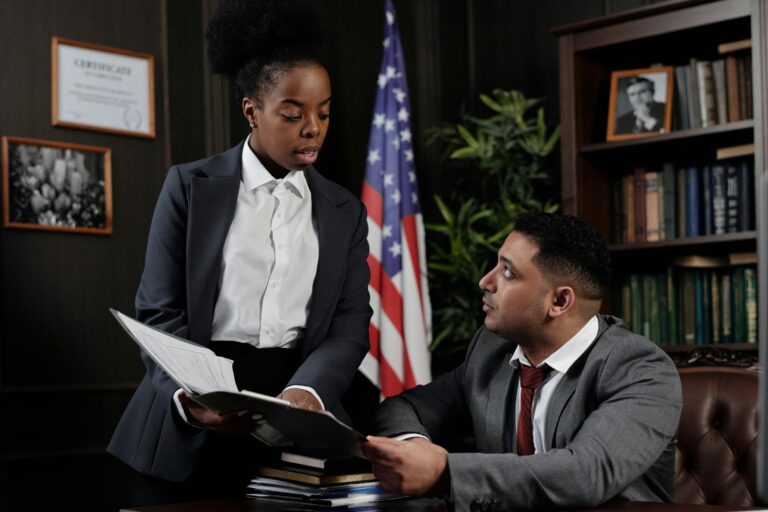Negligence is a legal term that describes when an owner or occupier’s actions fall below a standard of care. A slip and fall lawyer will speak with you about a negligence case, identify who is at fault, and process your claim for you. Here is how you weigh owner versus occupier negligence in your case:
What Is Owner Versus Occupier Negligence?
A slip and fall lawyer can assist you with your case by identifying who has premises liability for negligence. Premises liability holds owners or occupiers responsible for injuries that occur on the property due to hazardous conditions, such as snow and ice. The factors influencing premises liability include:
Duty of Care Breach
Property owners or occupiers, like leaseholders, must maintain reasonable care to keep their premises safe. A breach of this duty is when they either create hazardous conditions or fail to correct the issue within a reasonable timeframe. Unsecured handrails, broken stairs, and wet floors are examples of unsafe premises.
For an owner or occupier to be held liable for these conditions, they must have actual or constructive knowledge of the issue. Actual knowledge refers to having an awareness of the situation. Constructive knowledge implies that the owner or occupier should have known about the condition with inspection procedures. This gives them the opportunity to fix the problem in a timely manner.
Causation of the Incident
Once we have accepted your case, we will demonstrate that the hazardous condition directly caused your slip and fall incident. Slippery floors and staircases can cause serious injuries, such as broken bones and a loss of mobility. Not displaying cones or warning signs is also evidence of causation.
Damages and Compensation
The final factor for determining liability is to provide evidence of damages suffered as a result of the incident. Medical records provide factual evidence of injuries, treatments, and financial costs. There are also noneconomic damages to evaluate, which are known as “loss of enjoyment of life.” This is where you experience a diminished ability to enjoy activities or pleasures after your accident.
How Do Slip and Fall Cases Work in Pennsylvania?
Different states have varying negligence laws. In Pennsylvania, we have a modified comparative negligence rule. This means that if you are partially responsible for your accident, you still may be able to recover damages. You could have out-of-pocket expenses, lost wages, or experienced pain and suffering that deserve to be compensated.
Determining if the occupier or property owner is responsible for your injury may vary depending on your specific circumstances. One type of liable occupier is a business owner who is leasing the property. It is their duty to offer clients, visitors, and sometimes the public a safe experience while on the premises. This includes grocery stores, apartment complexes, spas, and other establishments.
Contact a Slip and Fall Lawyer
At Philly Slip and Fall Guys, we provide legal services for those who have been injured due to a slip and fall incident. Our team works on contingency, which means that we get paid after your case is settled or won in court. Contact us today to schedule your free consultation.

